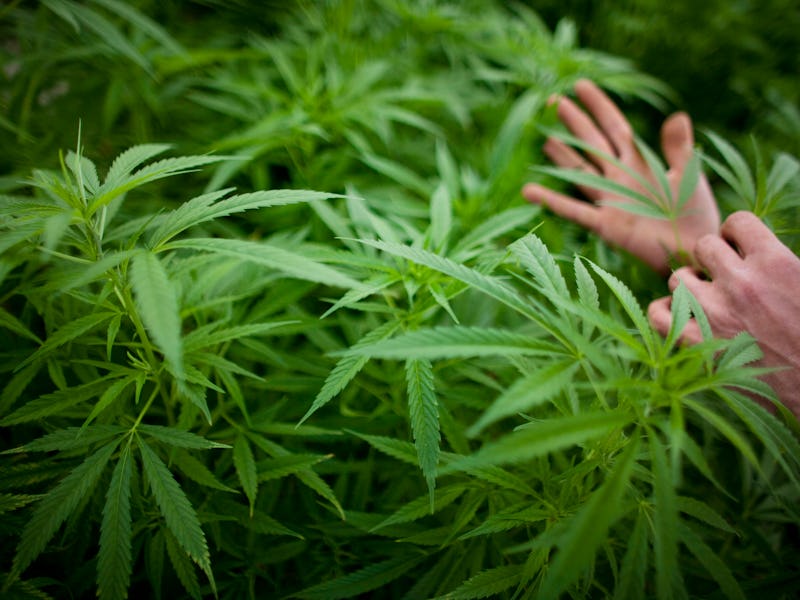Mexico's Supreme Court Moves Closer to Legalizing Marijuana
"Bad regulation is better than whatever regulation El Chapo and the narcos can provide."

Mexico’s Supreme Court has decided “that individuals should have the right to grow and distribute marijuana for their personal use.” The Wednesday ruling does not end the country’s current punitive drug laws, but opens up opportunities for new, rewritten policies.
The case began when the nonprofit group Mexico United Against Crime created the Mexican Society for Responsible and Tolerant Consumption (with the Spanish acronym SMART) and applied for a marijuana license from Mexico’s agency responsible for drug regulation. When SMART was denied, the group (led by Juan Torres Landa and Armando Santacruz) appealed, which made its way to the Supreme Court and became this case.
There is further work to be done to achieve nationwide legalization in Mexico because the court’s ruling applies specifically to SMART’s appeal. To make marijuana legal throughout the country, the criminal chamber of the court — which is responsible for Wednesday’s ruling — would have to rule the same way in five votes, or eight of the 11 justices of the full court would have to vote in favor.
In his 88-page ruling, Justice Arturo Zaldívar argued for legalization because human beings are autonomous and the state cannot regulate their recreational activities, The New York Times reports. Zaldívar’s opinion, however, is just one of many in Mexico, a country embroiled in a dangerous drug war. A Mexico City university professor Catalina Pérez Correa González, for one, said “The existing laws don’t reduce violence.” Putting control in the government’s hands is better than leaving it to illegal criminal groups.
The Mexican government’s work will continue, but opening the door to legalization helps many without providing any additional support to those shipping mass quantities of marijuana to the United States — where legalization fever is heating up. Small farmers could make money without having the government raid marijuana fields. Torres Landa believes the potential for profit is real, saying, “We have been trying to struggle against illegality, and the results were almost negligible. Five or six years ago, we asked why? The answer, as the Americans say, was in the money.”
It remains to be seen what developments will come of the court’s ruling, but, as Santacruz said, “bad regulation is better than whatever regulation El Chapo and the narcos can provide.”
Maybe Ohio will come around and legalize, too.